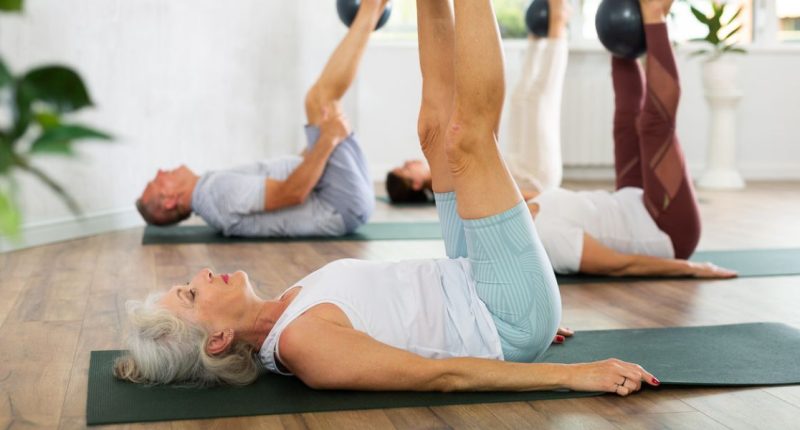People with an inactive lifestyle can improve their health by incorporating at least five minutes of eccentric exercise into their day, a new study has shown.
Researchers from Edith Cowan University have found that a five-minute a day, home-based bodyweight eccentric exercise programme improves the physical and mental health of sedentary adults.
During the four-week trial, those taking part completed daily exercise involving 10 repetitions each of wall push-ups, chair reclines, chair squats and heel drops focusing on eccentric exercise – slowly lowering the heel below the level of a step while focusing on the eccentric (lengthening) phase of the calf muscle contraction.
Lead researcher Professor Ken Nosaka said: “We saw significant improvements in muscle strength, flexibility, strength endurance and mental health, suggesting that even small amounts of daily exercise can provide sustainable and detectable benefits in sedentary individuals.
- Compound Exercises: How They Help Support Healthy Aging
- Best exercises for people with type 1 diabetes outlined in new research
“The results highlighted that eccentric exercises are very effective in improving fitness. This type of exercise is also more accessible to most people, as it makes use of body weight and eliminates the need to go to a gym.”
He added: “The eccentric exercises can also be spread out during the day, which makes it more achievable to those who are time poor.”
Approximately 5.3 million deaths each year in Australia are caused by physical inactivity, research has shown.
Only 63% of adults in Australia meet the aerobic criteria for adult physical activity, data has revealed.
Figures have also shown that nearly 20% of the Australian population meet both aerobic and physical strength guidelines.
Professor Nosaka said: “As you get older, your fitness level will decline by 1% to 2% a year on average.
“So, for someone who is 50 years old their fitness levels will be 20% less than compared to when they were 30 years old.”
He continued: “Performing exercises regularly is very important, particularly as people get older, as it lowers the risk of chronic disease, injury, fatigue and helps with mental health.”
“The guidelines are for 150 minutes a week of exercise, but that figure can often discourage people, especially if they are just starting out.”
He concluded: “Using five minutes a day as a starting point and building on that, would allow people to see more results.
“Every muscle contraction counts, but you need at least 10 contractions for each exercise in order to gain some results.”
The study was published in the European Journal of Applied Physiology.





